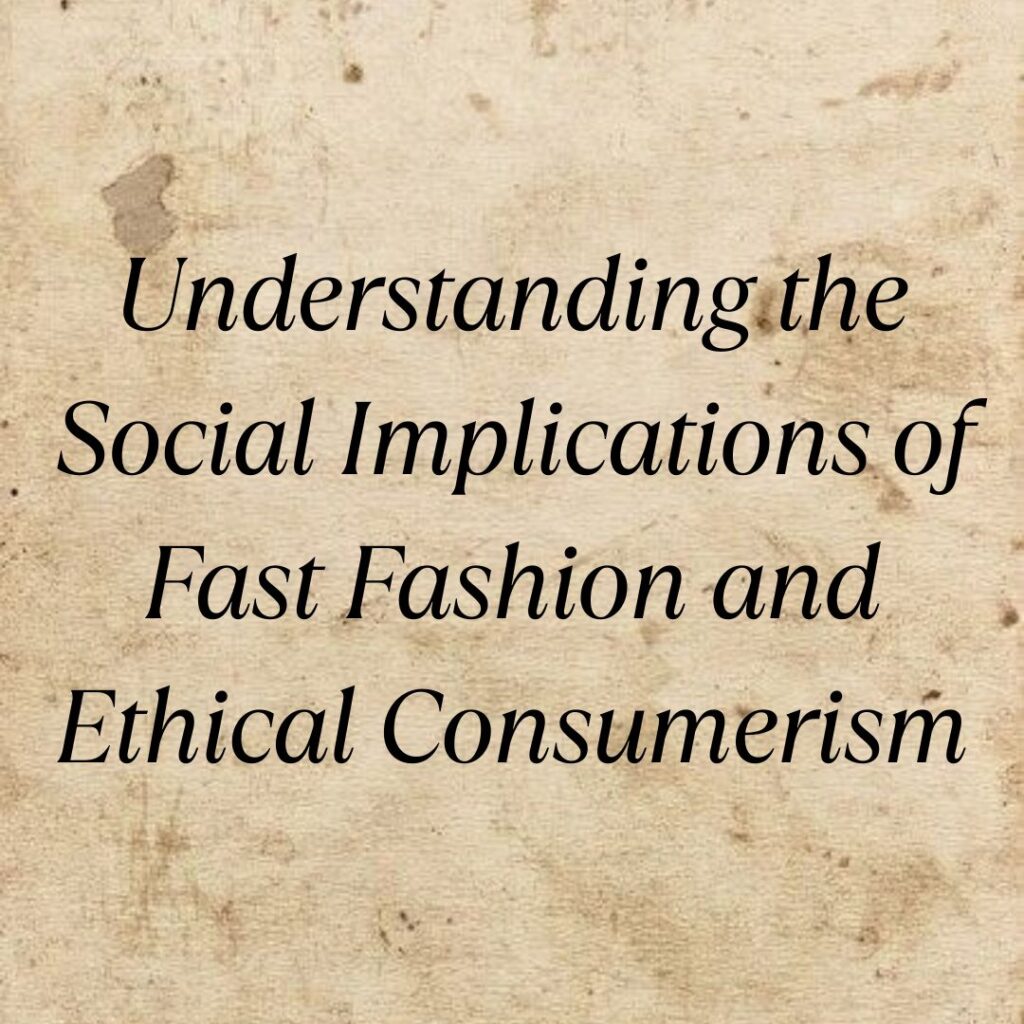In today’s fast-paced world of fashion, trends come and go at lightning speed, fueled by the rapid production and consumption cycles of fast fashion. While this industry has democratized fashion, making trendy clothes affordable and accessible to the masses, it also carries significant social implications that are increasingly coming under scrutiny. This article dives deep into the dynamics of fast fashion, explores its social impact, and examines the rise of ethical consumerism as a counter movement.
What is Fast Fashion?
Fast fashion refers to the quick turnover of clothing collections inspired by recent runway trends. Brands produce new designs rapidly and inexpensively, often outsourcing manufacturing to developing countries with lower labor costs. This model allows retailers to offer low-cost clothing that aligns with current fashion trends, enticing consumers to buy more frequently.
Social Implications of Fast Fashion
- Environmental Impact: Fast fashion contributes heavily to environmental degradation. The industry is notorious for its high water consumption, chemical pollution from dyeing processes, and immense textile waste. Synthetic fibers used in fast fashion often do not biodegrade, further exacerbating environmental issues.
Example: In 2019, the fashion industry produced 2.1 billion tons of carbon dioxide emissions, more than the emissions of France, Germany, and the UK combined. - Labor Exploitation: Many fast fashion garments are produced in factories with poor working conditions, low wages, and long hours. Workers, predominantly women in developing countries, often face unsafe environments and inadequate pay.
Example: The 2013 Rana Plaza collapse in Bangladesh, where over 1,100 garment workers died due to unsafe building conditions, highlighted the dire consequences of unethical labor practices in the fashion industry. - Consumerism and Waste: Fast fashion encourages a culture of excessive consumption and rapid disposal. Clothes are often worn only a few times before being discarded, contributing to landfill waste and resource depletion.
Example: The average consumer bought 60% more clothing in 2014 compared to 2000, but each garment was kept for half as long.
Rise of Ethical Consumerism
In response to the negative impacts of fast fashion, ethical consumerism has gained momentum. Ethical consumers prioritize sustainability, fairness, and transparency in their purchasing decisions. They seek out brands that uphold ethical standards throughout their supply chains, from sourcing materials to manufacturing and labor practices.
- Demand for Transparency: Ethical consumers advocate for transparency regarding sourcing, production processes, and worker conditions. They support brands that provide clear information about their ethical practices.
Example: Patagonia, a leader in ethical fashion, promotes fair labor practices and environmental responsibility, attracting consumers committed to sustainability. - Support for Sustainable Practices: Sustainable fashion initiatives include using organic or recycled materials, reducing carbon footprints, and promoting garment longevity through durable design and repair services.
Example: H&M’s Conscious Collection uses organic cotton and recycled polyester, aiming to reduce environmental impact while maintaining affordability. - Community and Advocacy: Ethical consumerism extends beyond purchasing decisions. It fosters community engagement, advocacy for workers’ rights, and awareness campaigns about sustainable fashion practices.
Example: Fashion Revolution Week, an annual event, encourages consumers to ask brands, “Who made my clothes?” to promote transparency and accountability.
Conclusion
The debate surrounding fast fashion and ethical consumerism underscores broader societal concerns about sustainability, social justice, and corporate responsibility. As consumers become increasingly aware of the impacts of their fashion choices, the industry is gradually shifting towards more sustainable practices. By supporting ethical fashion brands and advocating for change, consumers can play a pivotal role in shaping a more sustainable and equitable future for the fashion industry.
In essence, understanding the social implications of fast fashion and embracing ethical consumerism empowers individuals to make informed choices that align with their values and contribute positively to global sustainability efforts.






